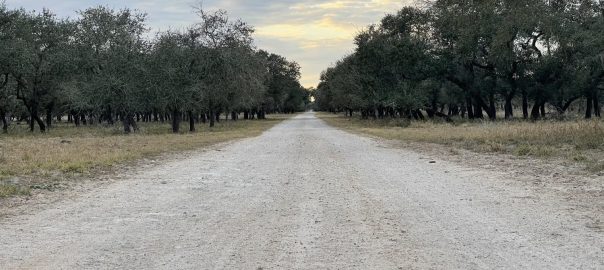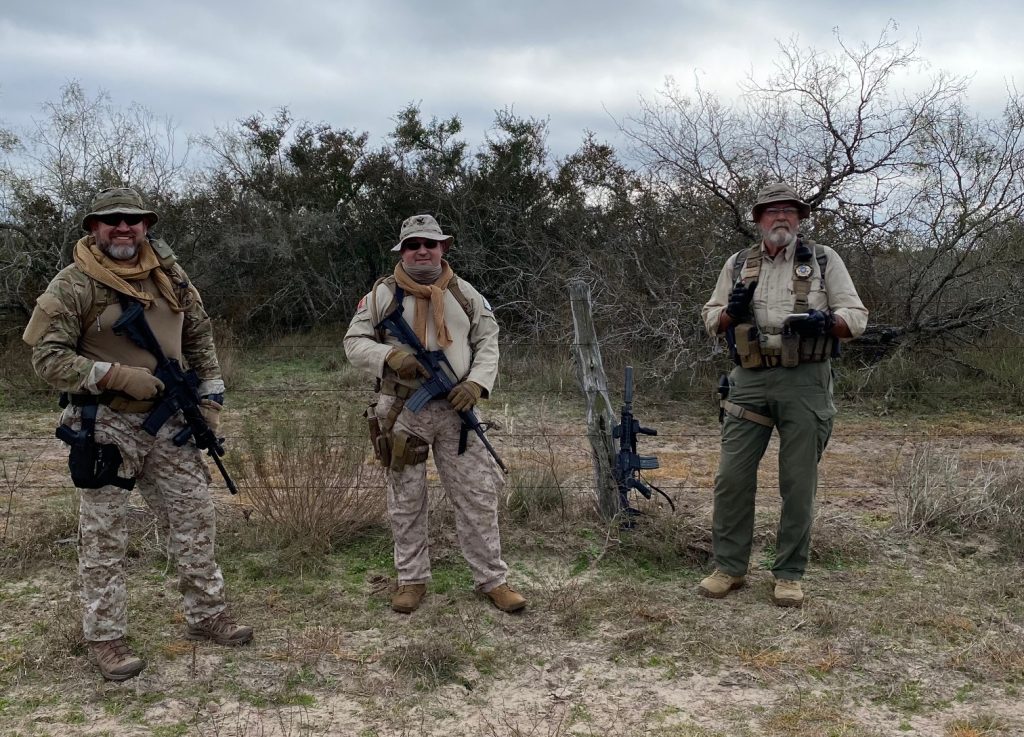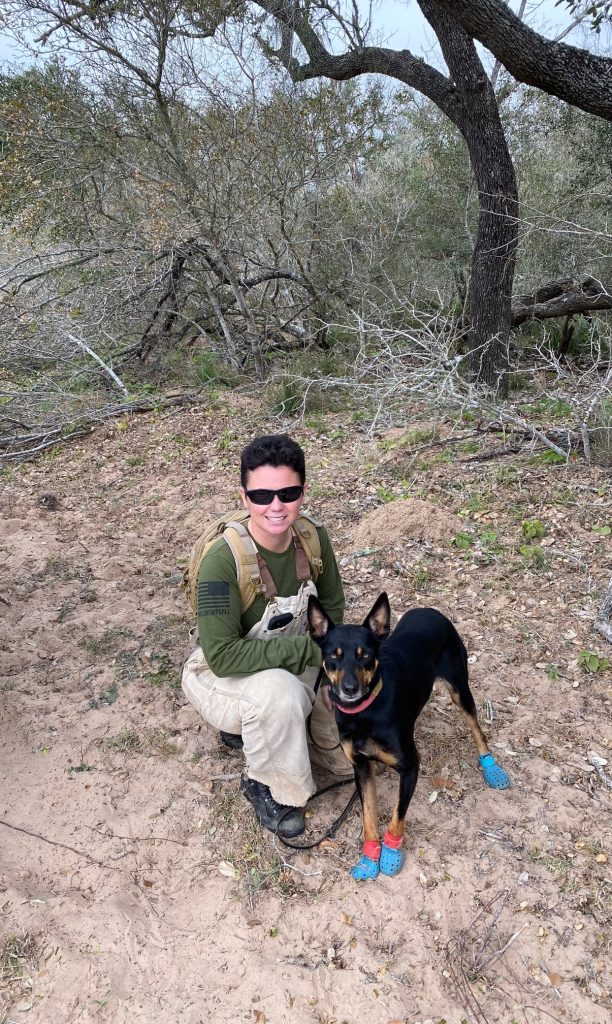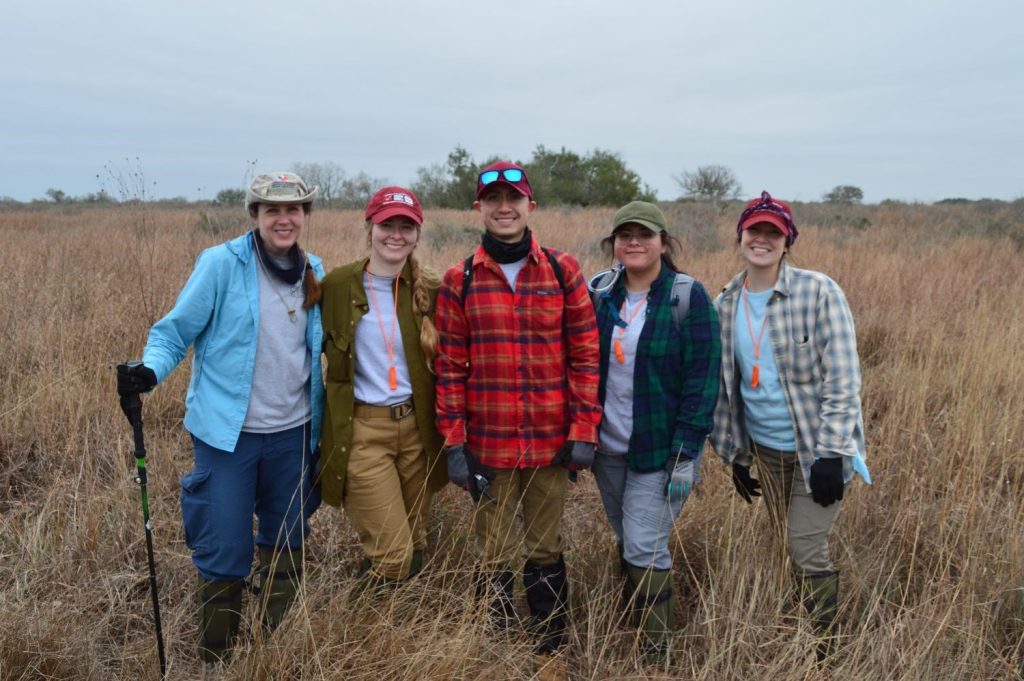There are a lot of emotions going through my head as I prepare for the journey to Falfurrias. Although my team has informed me on what I can expect to see, I know that nothing can truly prepare me for what I am about to embark on.
Although I have never been to Texas before, I have experienced the humid summers of New Jersey, spending my time off from school either mowing lawns or working at an outdoor flea market. I know what physical labor feels like in hot weather and how it takes a toll on the body. Luckily, I came well equipped with supplies to combat the weather in order to prevent it from becoming a hindrance to the job. The heat will be an obstacle, but it will also give me some perspective on what the migrant journey is like.
The environment itself will also be very new to me. From what I know about the land we are searching, it is mostly desert terrain. I am curious to see new wildlife and a different side of nature. As exciting as it is to see a different part of the country, I am also slightly worried about my lack of fieldwork experience. This will be my first true field search, not to mention in an unfamiliar area. I am truly honored to be a part of this team and I view this as an important learning opportunity for my career.
I also look forward to meeting new people. From what my team has told me, the individuals we will be working with in Texas are very welcoming and kind-hearted. It makes me happy knowing that there are still people in this world who genuinely want to make a difference in the world to benefit humanity. There is also so much to learn from meeting new people. If you pay attention, they will inadvertently teach you valuable lessons that can sometimes stick with you for a lifetime. In addition, I look forward to working with the rest of my team. Although we all attend classes together and see each other every day, this will be my first time working with them professionally. I hope we can find common ground to allow us to grow closer as a group. I believe a strong bond among a team facilitates more productive work.
Most importantly, I am looking forward to learning more about the perspective of the migrants and how our work makes a difference. Although I have been studying up on the crisis at the border in preparation for this trip, I hope to hear real stories from the people we meet that are grounded in the reality that many of us don’t regularly hear about. I want to know more about the real truth about this humanitarian crisis and experience the impact our work has had on the community for years. Yes, we are a group of forensic scientists who specialize in skeletal identification and field searches. However, by learning more about the story of why we are there, I can educate others on the complexities of this issue and why it isn’t as black and white as some may see it.
Austin
Latest Posts

Destination: Falfurrias
It’s hard to believe that in just a few short days, I’ll be heading back to Texas. With all of the hubbub of wrapping up the semester, the trip has managed to sneak up on me and is just around the corner. I couldn’t be more excited, though. I have all of my supplies, and I’m ready to pack my suitcase!
As a returning team member, I have some idea of what to expect, but I also know that each trip is unique and has its own triumphs and challenges. Having gone in January, I think the biggest change is going to be the weather. We were lucky on the previous trip to have pretty mild weather. Going in May, however, is going to be extremely hot and humid. Looking ahead at the weather, we’re going to be working in sunny, 95+ degree days. Just keeping moving is going to be challenging, but what we are doing makes it worth it.
We were also lucky with our environment on the previous trip. The mild weather kept most of the snakes and insects hidden away, and the plants were still dead-ish. This trip is most likely going to be chock-full of slithery snakes, biting/stinging/itching/sucking creepy crawlies, and plants that want to stab you. I firmly believe in the motto “everything in Texas wants to kill you.” I can’t say I’m looking forward to the interactions I’ll have with these things, but I just have to remind myself that everything I’m facing is only for a few hours a day, and I have all of the supplies I could need to face them. The migrants aren’t so lucky. They’ve traveled for days or weeks with little in terms of supplies, and no idea of knowing when and where they will finally end up.
This trip will be a little bittersweet in terms of team members. While I’m sad that Alex and Tanya won’t be on this trip with me, I’m excited I get to work with Jordan and Austin and experience another trip with Izzy. The team dynamic plays a vital role in how successful we are during our time in Falfurrias. Our previous team was a close-knit, well-oiled machine, and I have high hopes that this team can be the same. We get along well on and off campus, and I hope our friendships translate well in the field.
I am also eager to see Don and Eddie again! They are truly awe-inspiring individuals. While they approach the migrant crisis from two different angles (law enforcement vs humanitarian), they do so with the same goal in mind: save as many lives as possible and bring home those who perish along the way. Their dedication and passion for what they do is incredible. I wish everyone could meet and work with them in the ways we get to. We’ll also be reunited with Melissa (and Oakley!) and the guys from Remote Wildlands Search and Recovery. Working with them was a blast, and they also taught me so many things. I’m excited to see and work with all of them again!
Just as with the previous trip, I know the memories I make and experiences I have on this trip will change me and last a lifetime. What we do is just a very, very, very small piece of a much larger picture. I couldn’t be more ready to go!
~ Olivia
Ways to Support the Groups You are Reading About hat Volunteer to Search for and Rescue Missing Migrants
This work takes a toll: it is not only physically and mentally exhausting but equipment does not last long in this environment. All these individuals and groups consist of volunteers who dedicate their own time and resources to searching for those in distress, locating and recovering the dead and/or providing life saving essentials like water. Brooks County faced near record breaking numbers of deaths and rescues this past year, with 119 bodies recovered from remote ranchlands in 2021. That number represents the number of recorded deaths, meaning those bodies were located and recovered. There are likely many more. That’s why search efforts are so important. Each rescue and jug of water lowers the death count. It’s important yet difficult work that these groups do year round. You’ve read a little about them in our blog and we’d like to provide you with some more information on these organizations and information on how to support their efforts.
Remote Wildlands Search and Recovery
“Remote Wildlands Search and Recovery searches remote areas of ranches primarily in Brooks County Texas. The harsh weather, soft sand, featureless terrain, and thick brush make the traverse difficult at best. This is where we operate” The group consists of experts in search and rescue, tracking and medical aide. You can support their team by donating here.
They taught us so much about searching the brush. These are skills that we not only used here in Texas but will take back with us to use when we do searches in the Midwest. The knowledge on this team is so vast and we appreciate everything they shared with us. We also enjoyed getting to know everyone and hear their personal stories of what motivates them to do this tough work. It was clear that everyone was very passionate about performing rescues and saving lives.

South Texas Human Rights Center
“The South Texas Human Rights Center is a community based organization in Falfurrias, TX dedicated to the promotion, protection, defense and exercise of human rights and dignity in South Texas. Our mission is to end death and suffering on the Texas/Mexico border through community initiatives.” You can support their team by donating here.
The impact of the South Texas Human Rights Center is far reaching. Not only are they passionate about saving lives by providing water to migrants in need and searching for and identifying those who have perished in the Texas Borderlands but they also participate in large scale awareness campaigns and policy change. Eddie’s passion for human rights is infectious and the team learned a lot from him. Most importantly they learned that education, awareness and action can be just as profound as the physical work in Brooks County to work towards change.

South Texas Mounted Search and Rescue
“South Texas SAR is a 501c3 non-profit that consist of Veterans and Supporters with certified mounted search and rescue horses and detection canines. Though we are based in South Texas our mission is to look for people lost or missing nationally and internationally (K9) with law enforcement, forensics and Search and Rescue organizations.” You can support their team by donating here.
Melissa taught us a lot about how to properly train search dogs. Her experience with canine handling began with her time in the military and her knowledge and ability is clear from the moment you meet her. She never laughed at our questions or got tired of answering them. Not only is she skilled but she is passionate about her work here in the Texas borderlands and in missing persons cases across the US. We enjoyed getting to know her and see her dogs in action.

Beyond Borders
The University of Indianapolis Beyond Borders team is a humanitarian forensic science team that volunteers their skills to counties in need due to lack of resources or mass disaster situations. The team is directed by board certified forensic anthropologist, Dr. Krista Latham who has 20 years of forensic experience in the US and internationally. Team members consist of University of Indianapolis students who have been formally trained in forensic techniques in laboratory and field settings. You can support this team by donating here.

Thank you so much for following our recent journey. This will be the last post until we start to get ready for our May mission to the Texas Borderlands.